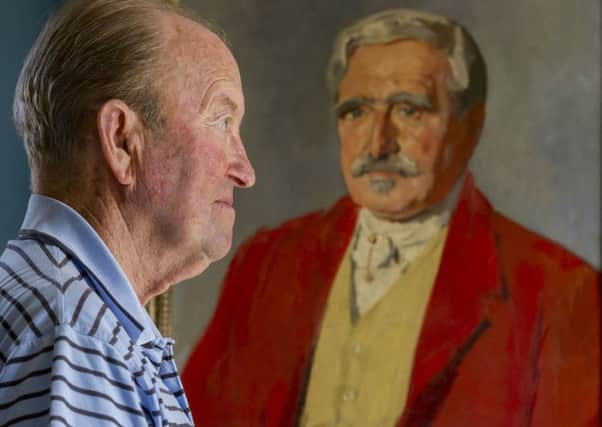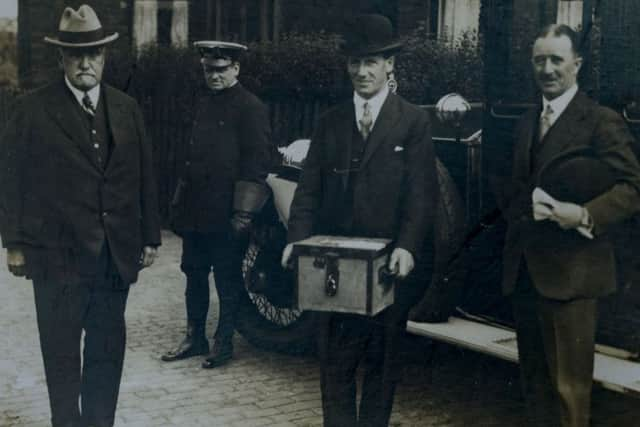Lord Brotherton - the story of a great philanthropist


When we think of philanthropists the names Carnegie, Rockefeller, Guggenheim and Gates might come to mind. Cynics might say these great benefactors’ generosity served to improve or off-set an earlier, harder image accrued through their monopolisation of a particular business.
The fact remains, though, that many have benefited from their decision to give sizeable chunks of their wealth away. The world is also scattered with lesser-known philanthropists. They also made piles of money, and could have just stashed it all away for the family.
Advertisement
Hide AdAdvertisement
Hide AdIndustrialist Edward Allen Brotherton was one such man. A businessman with a passionate belief in the power of education and a love for the written word, today his name is mostly associated with the venerable Brotherton Library at Leeds University, which he paid for with a gift of £100,000 in 1927 – a donation that helped to give the University early international repute.


When he died aged in 1930 aged 74 – having lost his wife and baby in childbirth and never remarried – Lord Brotherton of Wakefield’s priceless collection of rare books, manuscripts and letters was bequeathed to the Brotherton Library, as an endowment for its future expansion.
During his lifetime he enjoyed showing his treasures to anyone who visited his homes at Arthington Hall near Leeds and Roundhay Hall in the city’s suburbs.
Since his death, his generosity has meant that Leeds University’s Brotherton Collection – his English literary collection of 25,000 books, 400 manuscripts and 30,000 letters at its core – has become of the finest in the world.
Advertisement
Hide AdAdvertisement
Hide AdIt includes a 1623 First Folio collected edition of Shakespeare’s works, printed seven years after his death, and a first edition of Andrew Marvell’s Miscellaneous Poems.


Today that collection has grown into The Treasures of The Brotherton, with its own special, recently-opened £1.9m gallery, funded in part by the Ratcliffe Brotherton family and also by Lottery money.
Until now anyone could access the Collection, but it was housed in far-flung places around the Brotherton Library, and viewing was by appointment only. The gallery means the public can simply walk in and marvel at items as disparate as ancient clay tablets, a draft manuscript in the hand of a 14-year-old Felix Mendelssohn or the Works of Geoffrey Chaucer, bound in embossed leather.
Although he did not know his great-uncle Edward, David Brotherton is vastly proud of the precious legacy. He is a farmer in North Yorkshire and also one of 157 members of the Jockey Club, alongside the Duke of Edinburgh and Sheikh Mohammed. In a long and successful career as a owner, he had winners at Epsom and Longchamps. David’s mother Lurline Brotherton owned the 1950 Grand National winner Freebooter, and his daughter Serena is one of the country’s leading amateur female jockeys.
Advertisement
Hide AdAdvertisement
Hide AdWith other members of the family, David is on the advisory committee that approves acquisitions to the Brotherton Collection. He is also a trustee of the Brotherton Charity Trust, which exists to give financial help to needy pensioners in and around Wakefield. “My great-uncle would be immensely pleased with how the Collection has grown, become so renowned and now has a dedicated gallery,” says David, 75.
Born and brought up at Kirkham Abbey near Malton, and educated at Eton and Cirencester Agricultural College, he’s enmeshed in rural life but relishes his involvement with Leeds University – which he has also made a beneficiary in his will.
From time to time he’s called upon to talk about Edward, the eldest child of nine born to Theophilus Brotherton, a yarn agent, and his Irish-born wife Sarah. In 1870, aged 14, he left home in Manchester to go to sea, but his ship sprang a leak and he thought the better of his choice.
He worked in offices while studying in the evenings. A teacher spotted the bright young man’s potential and got him a job in a chemical laboratory. By 19 he had taken up a job at a chemical works in Wakefield, before long he was running the place and saving to buy the business, and at 22 the company was his. One factory became six nationally, including a plant in Stourton, Leeds.
Advertisement
Hide AdAdvertisement
Hide AdDavid has brought out a few items from the family archive to illustrate some relatively unknown aspects of his great-uncle’s life. During Queen Victoria’s Diamond Jubilee year in 1897, Edward chartered trains to bring all 2,000 employees from his six factories to a garden party at his home, where entertainment included food and drink, a band, a ventriloquist, cricket match and fireworks – all at the boss’s expense.
David shows me a beautiful illuminated manuscript tribute which was presented by Brotherton’s staff to say thank you. “He was a model employer,” says David. “At a time of rudimentary employment legislation to protect workers, he ensured that his workforce had paid holidays, continued payment when injured or ill, and recreation facilities provided by the firm.
“He gave employees shares in Brotherton & Company, and when the company reached its golden jubilee, every staff member received a gold sovereign for each year worked. The longest serving got £39.10s. He was also renowned for knowing all the staff by name.”
Brotherton’s company turned waste industrial gas into ammonia, which was useful for many other industrial processes – so he was also an astute early adopter of recycling. Having become the most successful in his field in the UK, in the early years of the 20th century he turned his attention to public life and was elected Conservative MP for Wakefield.
Advertisement
Hide AdAdvertisement
Hide Ad“Certainly one has the impression that he didn’t enter public life with any personal ambition, but more with a sense that a man in his position ought to serve the community,” says David. Brotherton was re-elected twice before losing his seat in 1910. He was to serve again from 1918 to 1922.
Later, as Lord Mayor of Leeds at the outbreak of the Great War, he offered to equip the ‘Leeds Pals’ – at his own expense. The cost of this was said to be a small fortune, but it was dwarfed by the colossal amount he donated to support the war effort nationally. One report says he gave £500,000, and another that he offered the government half his personal capital and his entire income for the duration of the conflict. Unsurprisingly, Brotherton was created a Baronet in 1918.
“His two great enterprises were brought together by his extraordinarily selfless determination to improve all aspects of other people’s lives – materially, intellectually and spiritually. It’s wonderful that he was the way he was, and left so much for others to enjoy.”
The Brotherton family legacy
The Brotherton Circle recognises the special commitment made by alumni and friends who have pledged a legacy to Leeds University, and is named after Lord Brotherton of Wakefield, whose lifetime gifts and subsequent bequests funded the building of the Brotherton Library.
Advertisement
Hide AdAdvertisement
Hide AdThey also established the Brotherton Collection whose English literary section is based on the gift of his own magnificent collection of rare books and manuscripts.
Anyone who has included a gift to the University in their will is invited to join the Brotherton Circle.
Gifts from members of the Brotherton Circle will support students from less privileged backgrounds. For more information go to: www.alumni.leeds.ac.uk/legacies/Brotherton_Circle